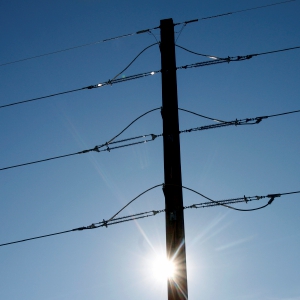Connecting the Dots: Handing off the baton
| Published: 08-11-2023 4:51 PM |
Donald Trump is not the first democracy wrecker in U.S. politics. While he may not admit it (he is a master of admitting nothing), he had a mentor who he originally included on his list of vice-presidential candidates for the 2016 election. That mentor is Newt Gingrich who transformed partisan battles into today’s blood sport that has all but wrecked Congress. It has paved the way for Trump’s to continue wrecking our democracy.
At the height of the midterm elections on Sept. 27, 1994, then House Minority Whip Newt Gingrich and a Republican Conference driven by conservative change agents, offered the American electorate a policy document called the “Contract with America.”
The Contract with America was a plan that sought to nationalize the Congressional election. It was a major step in nationalizing House elections and making them hinge on partisan identity rather than local issues or interests. The contract formed a foundation for Republican policymaking as members of Congress pushed for reducing the size of government, lowering taxes, emphasizing entrepreneurship, establishing tort reform, and bringing about welfare reform. Despite some of its lapses in specificity, the Contract was clear enough about its main points — more money for defense and tax cuts directed mainly at corporations and upper-income Americans. Many of the Contract’s policy ideas originated at The Heritage Foundation, a conservative think tank.
Twenty-nine years after engineering the Contract with America, Gingrich can draw a direct line from his work in Congress to the upheaval now taking place in America. “But as he surveys the wreckage of the modern political landscape,” writes McKay Coppins in The Atlantic, “he is not regretful. He’s gleeful.”
Tectonic shifts in American politics in the 90s, particularly around issues of race and civil rights, had triggered an ideological sorting between the two parties. Liberal Republicans and conservative Democrats (two groups that had been well represented in Congress) were beginning to vanish, and with them, the cross-party partnerships that had fostered cooperation.
For their party to succeed, Gingrich maintained, the next generation of Republicans would have to learn to “raise hell,” to stop being so “nice,” to realize that politics was, above all, a cutthroat “war for power,” and to start acting like it.
The GOP was then at its lowest point in modern history. At that time, scores of Republican lawmakers had been wiped out in the aftermath of Watergate, and those who’d survived seemed to Gingrich, sadly resigned to a “permanent minority” mindset. “It was like death,” he recalls of the mood in the caucus. “They were morally and psychologically shattered.”
“But Gingrich had a plan” Coppins writes. The way he saw it, Republicans would never be able to take back the House as long as they kept compromising with the Democrats out of some high-minded civic desire to keep congressional business humming along. His strategy was to blow up the bipartisan coalitions that were essential to legislating, and then seize on the resulting dysfunction to wage a populist crusade against the institution of Congress itself. “His idea,” says Norm Ornstein, a political scientist who knew Gingrich at the time, “was to build toward a national election where people were so disgusted by Washington and the way it was operating that they would throw the ins out and bring the outs in.” That dynamic describes why Trump and Bernie Sanders were seen as change agents.
Article continues after...
Yesterday's Most Read Articles
 Retired police officer, veteran opens firearms training academy in Millers Falls
Retired police officer, veteran opens firearms training academy in Millers Falls
 Valley lawmakers seek shorter license for FirstLight hydropower projects
Valley lawmakers seek shorter license for FirstLight hydropower projects
 More than 130 arrested at pro-Palestinian protest at UMass
More than 130 arrested at pro-Palestinian protest at UMass
 Baseball: Caleb Thomas pitches Greenfield to first win over Frontier since 2019 (PHOTOS)
Baseball: Caleb Thomas pitches Greenfield to first win over Frontier since 2019 (PHOTOS)
 Real Estate Transactions: May 10, 2024
Real Estate Transactions: May 10, 2024
 As I See It: Between Israel and Palestine: Which side should we be on, and why?
As I See It: Between Israel and Palestine: Which side should we be on, and why?
Mickey Edwards, the Oklahoma Republican, who served in the House for 16 years, told Coppins he believes Gingrich is responsible for turning Congress into a place where partisan allegiance is prized above all else. He noted that during Watergate, President Richard Nixon was forced to resign only because leaders of his own party broke ranks to hold him accountable — a dynamic Edwards views as impossible in the post-Gingrich era. “He created a situation where you now stand with your party at all costs and at all times, no matter what,” Edwards said. “Our whole system in America is based on the Madisonian idea of power checking power. Newt has been a big part of eroding that.”
Political scientists tell us that the driving force behind American politics today is not actually partisanship, but negative partisanship, hatred of the other party more than loyalty to one’s own. Gingrich’s speakership was both a symptom and an accelerant of that phenomenon.
Today, in the Republican Party’s race to seize and to keep power by disenfranchising millions of people from voting, Gingrich handed the baton off to Trump.
Connecting the Dots is published every other Saturday in the Recorder. Greenfield resident John Bos is also a contributing writer for “Green Energy Times.” Questions and comments are always welcome at john01370@gmail.com.
]]>

 My Turn: No good answers with utilities in control
My Turn: No good answers with utilities in control My Turn: Blame Hamas for the suffering of Palestinians
My Turn: Blame Hamas for the suffering of Palestinians Ahmad Esfahani: Democratic lagging
Ahmad Esfahani: Democratic lagging Evlyn Ashong-Katai: Back tax fund for elderly, disabled
Evlyn Ashong-Katai: Back tax fund for elderly, disabled
